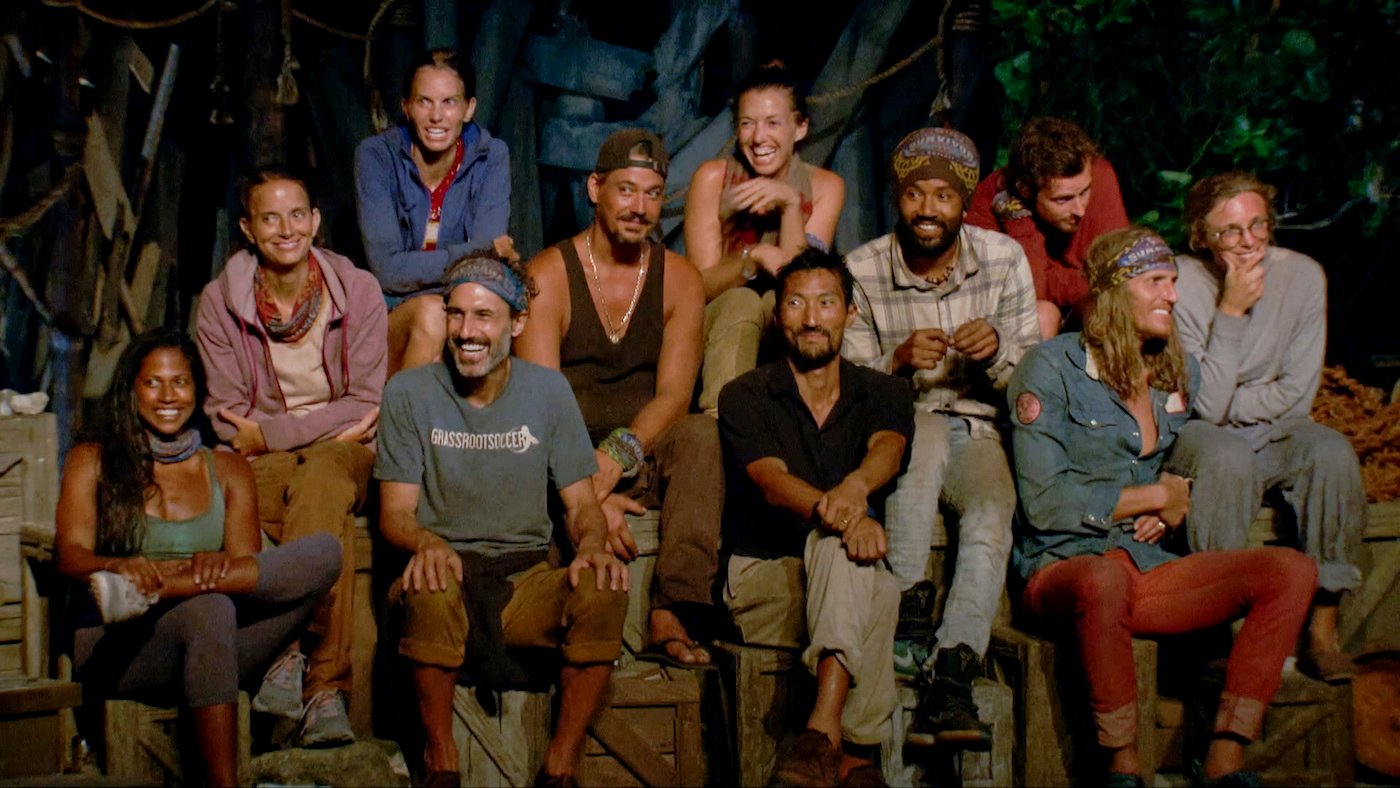Survivor’s Parvati Shallow Drops Behind the Scenes Dish About How Producers Run the Show – ‘You Don’t Have to Do What You’re Told’
Survivor winner Parvati Shallow unmasked some of the mysterious aspects of the longstanding series, sharing that the producers often use “devil’s advocate” questions to help move the game along. She also shared one important quality that producers look for in a winning contestant. This includes how the producers love to see a player go rogue.
Parvati Shallow reveals that ‘everyon’s playing the game’ on ‘Survivor’
“Well, everyone’s playing [the] game,” she dished on the Behind the Velvet Rope with David Yontef podcast. “There are multiple levels of game. The way that I see it, as, you know, the contestants have their game, we have what we want to do. We have our own intuition that we’re working with.”

“But we’re only getting certain information,” she continued. “The things that we see and hear ourselves or receive that information from other contestants or in some interview with a producer, they ask us questions. So that producers can ask, they’ve asked me questions that I’m like ‘Oh my gosh, I didn’t even think about that.’ Like, wow, good question. They won’t feed you any information.”
Parvati insisted that producers are not sharing any intel with the contestants. “But they’ll ask questions like, because for me as a competitor caused me to think about things that I wasn’t thinking about or seeing before myself and they want to make a good show.”
Producers use probing questions to move along the storyline?
Parvati said that producers use “devil’s advocate” questions to move the storyline. “So they’re trying to get certain things to happen, but without being manipulative and without telling you what to do, they are asking certain questions to see what comes naturally from inside of a competitor,” she said.
She stressed that production walks a fine line when it comes to questioning. “[Producers] are pretty balanced in the way they ask questions,” she remarked. “Kind of like me when I was a journalist. You might have your own take on how the situation is, but you have to be more balanced in the way you ask your questions and tell your story.”
“They will ask questions and like then ask devil’s advocate questions,” she recalled. “What they’re trying to do is get as much information as they can, depending on how the story goes. Like what choices you end up making a story that’s cohesive. So they have to cover all their bases in that way.”
Do ‘Survivor’ producers lean toward a certain type of player?
“I wouldn’t say that [producers are] playing the game necessarily,” she observed. “Cause I don’t think they choose a favorite. And then they’re like, ‘Oh, I’m going to try to get my horse to win.’ But the producers’ 100% like Survivor. They like the strategy. They like when people are thinking, you know, a few steps ahead. Or thinking about something that they would never consider, like they’re being surprised.”
“So there is this element psychologically if you were the kind of person who likes to be liked,” she stressed. “And I think most reality people are. And probably most people in general. Then as an interviewee, there is the sense of, I want to give this person, this producer, what will make them happy.”
“And that’s sort of the casting process is like, well, you’ve got to please the casting agents to get cast,” she added. “You have to get Jeff Probst to like even want you on the show. So there’s that like performance aspect. And then that comes into play with the producers as well. And of course, it comes into play at tribal council with Jeff, too people that are star-struck by him. Love him, want to give him whatever he wants.”
‘Survivor’ producers love it when players go rogue
“Yeah. I mean, it’s another element of the game that really is that you wouldn’t really consider until you’re out there playing,” she recalled.
“Well, going back to what we were talking about, 95% of our behavior is habit,” she revealed. “If you are a people pleaser in your normal life and you tend to do the thing that or perform or have a mask that is a to be liked mask, then you’re just going to go back to those old habits, especially when you don’t have enough food and you don’t have enough rest and you’re super stressed out. It’s too hard to override your unconscious habits when you are depleted.”
“You don’t have to do what you’re told. That’s the thing about Survivor. They love when you don’t do what you’re told. But like you still play within the certain bounds. There’s certain bands of play that’s appropriate. But they love when people push past. Like when Russell went and started looking for idols without clues, they love that. And now they’ve integrated that as part of the game, that’s become just rope.”


